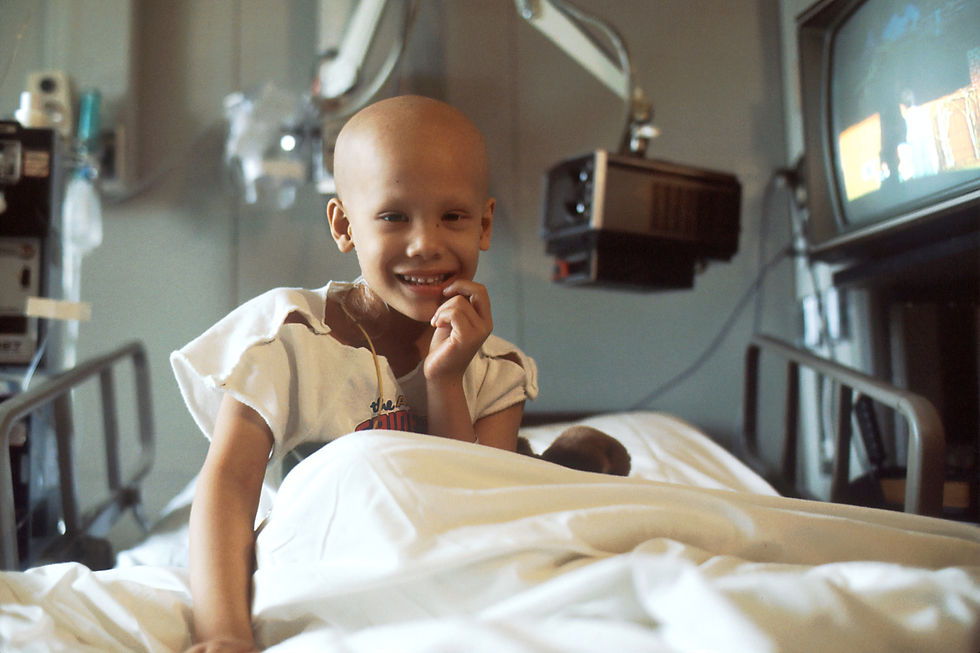Is there finally a painless cure for cancer?
- Jesus Arias

- Jun 11, 2022
- 3 min read

In the field of cancer, a modest medication study is having a seismic impact: Tumors were eradicated in all 14 patients diagnosed with early-stage rectal cancer who completed the research by the time it was published after six months of experimental therapy. Colorectal cancer experts are celebrating the study, which was published in the Novel England Journal of Medicine on Sunday, as a game-changing breakthrough that might lead to new therapies for other malignancies as well.
The Discovery
"I don't think anyone has ever seen something like this, where every single patient's tumor has vanished," said Andrea Cercek, the study's principal author and an oncologist at Memorial Sloan Kettering Cancer Center in New York. The individuals had rectal cancer and had not yet been treated, but they all had the same genetic instability. Each received nine intravenous doses of dostarlimab, a relatively new medicine that works by blocking a particular cancer cell protein that causes the immune system to suppress its cancer-fighting response.
The Tests
Scans that had previously indicated knotted, dark tumors now revealed smooth, pink tissue after six months. Scans, biopsies, and physical tests revealed no evidence of malignancy. "Do you mean all 14 patients?" Cercek said the probabilities are "very low" and "almost unheard of in oncology." The outcomes were so good that none of the 14 patients who finished the experiment required the scheduled follow-up therapy of chemo-radiation or surgery, and none of them had any serious side effects. Four additional patients in the experiment are still being treated, but their outcomes are looking well thus far. The findings indicate to a possible therapeutic option for rectal cancer, which can often have life-altering consequences for patients.
A second opinion
The findings, according to David Ryan, head of clinical oncology at Massachusetts General Hospital, are "game-changing" for cancer patients with mismatch-repair failure. Tesaro, a biotech startup that was bought by GlaxoSmithKline when the first patient started therapy in 2019, was the study's sponsor. "This is a huge thing," Ryan, who was not involved in the research, said. "It'll be difficult not to consider this for the next patient that walks through the door: 'Should I have chemo and radiation or should I do this immunotherapy?'"
The study participants have been and will continue to be closely watched by a team of specialists who will be able to check for any probable tumor recurrences or spread and respond immediately with therapy if necessary, according to Ryan. Patients who don't live near a specialist who can quickly and consistently obtain care might have a hurdle, according to him. "We are concerned that if recurrences occur, they must be identified as soon as possible in order to offer individuals the greatest opportunity," he added.
Soon
However, Ryan and Cercek both stated that the trial results suggest the possibility that anyone with a mismatch repair defect in other tumor types, such as those of the pancreas, stomach, or bladder, might benefit from Cercek's medicine. The study also emphasizes the necessity for cancer patients to understand their mismatch repair status, according to Ryan. Cercek delivered the report at the American Society of Clinical Oncology's annual meeting in Chicago on Sunday. The crowd erupted in applause before she had even finished her 10-minute lecture. As bold, white, highlighted letters emerged on a blue screen with her study's top-line finding: "100% clinical COMPLETE response in the first 14 consecutive patients," gasps and tears erupted from the crowd.








Comments